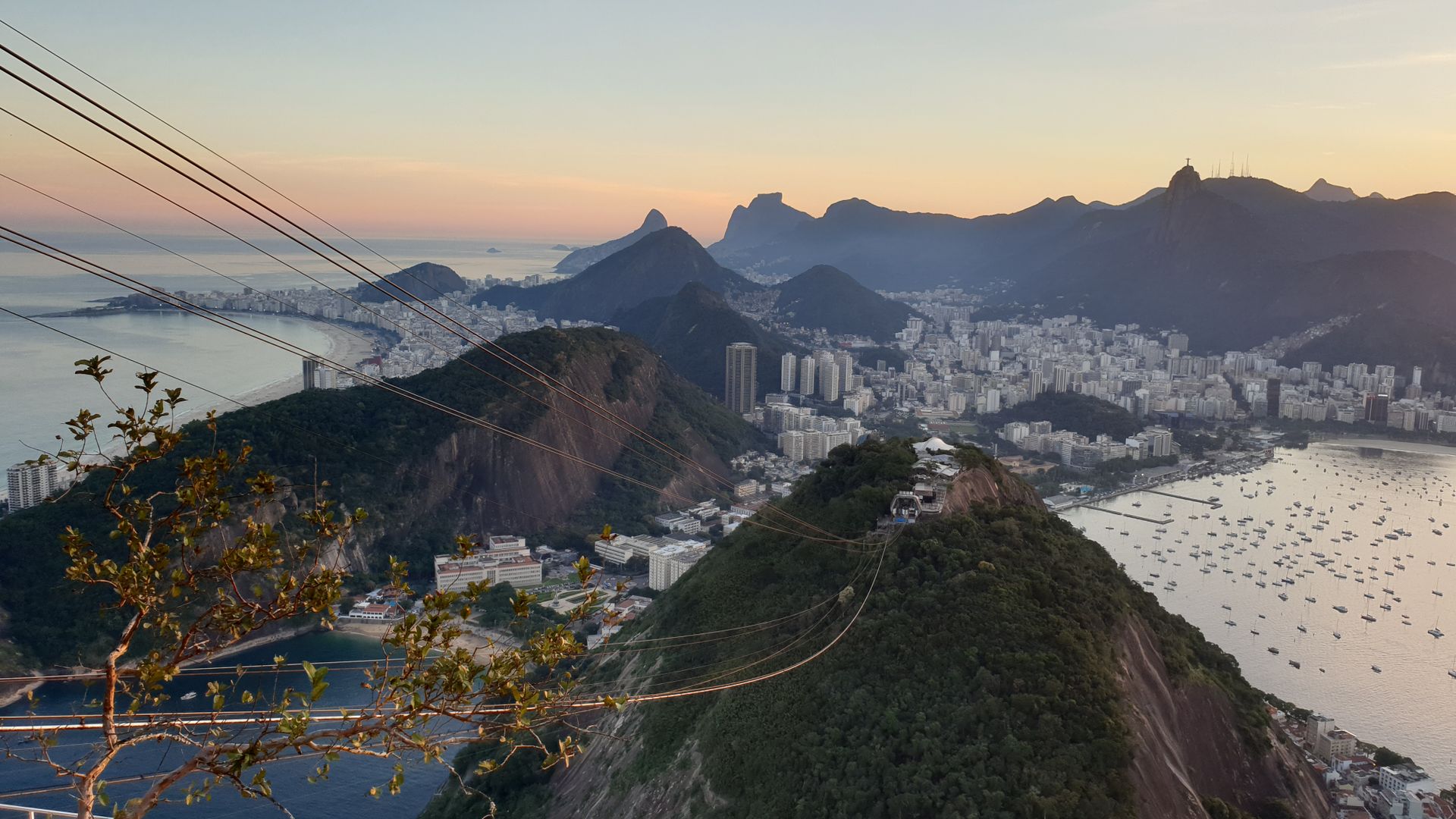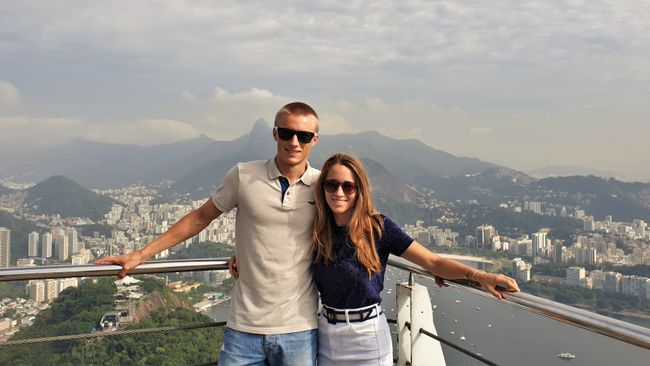Belize #1 - Caye Caulker
Wotae: 15.11.2019
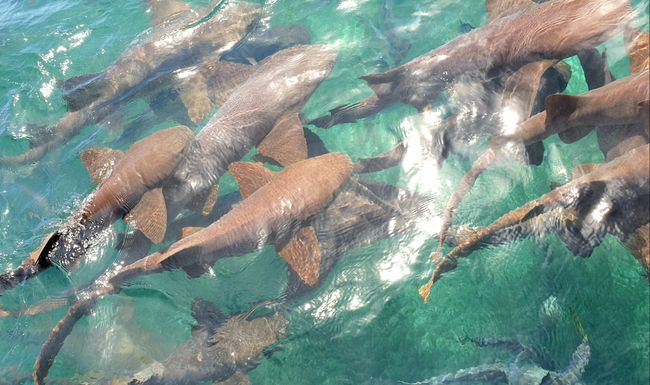
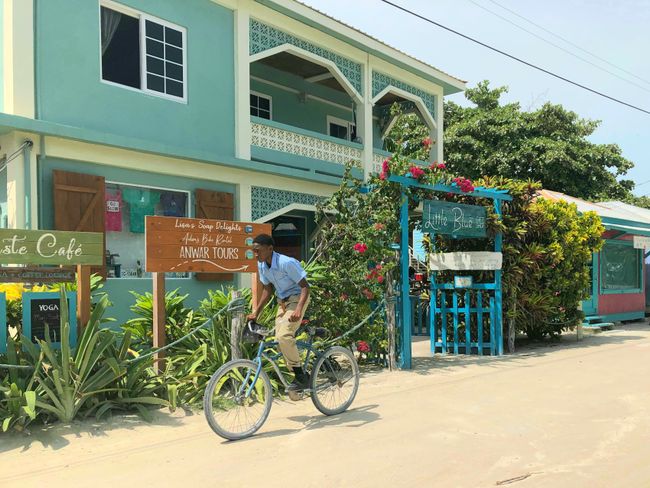
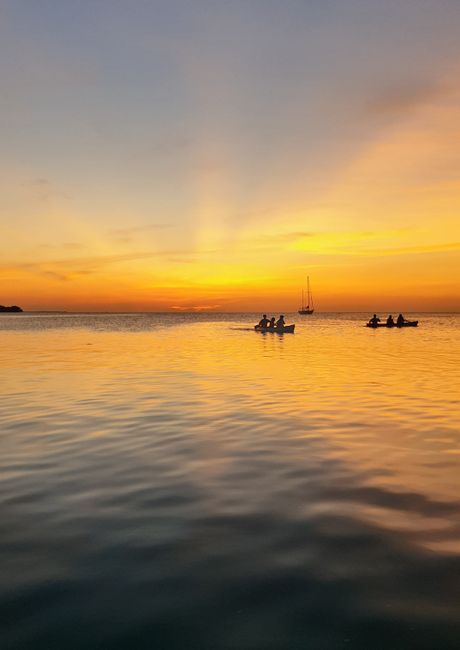
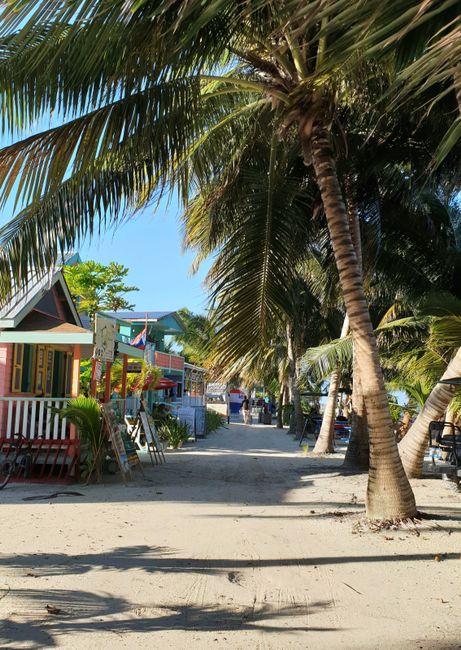
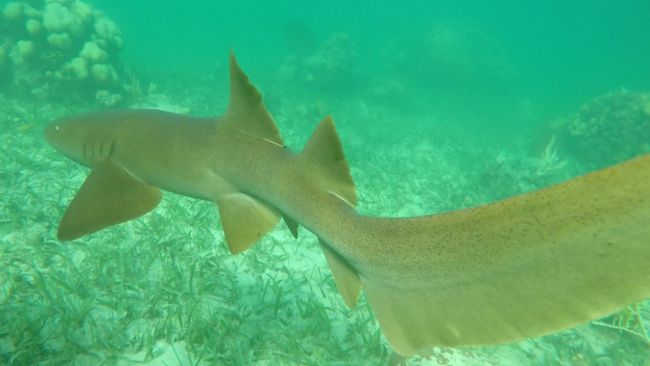
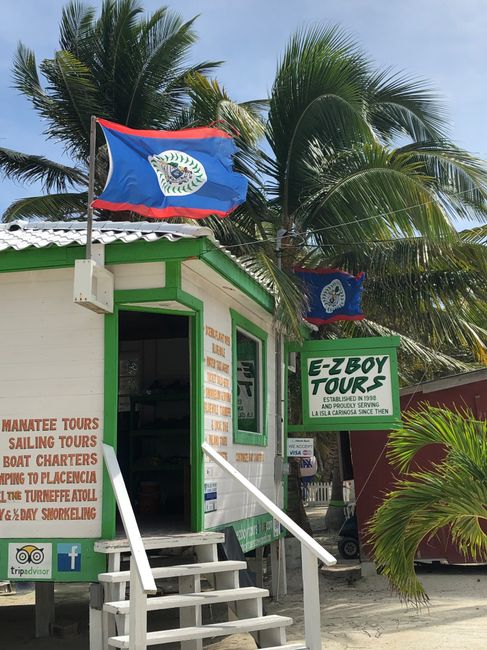
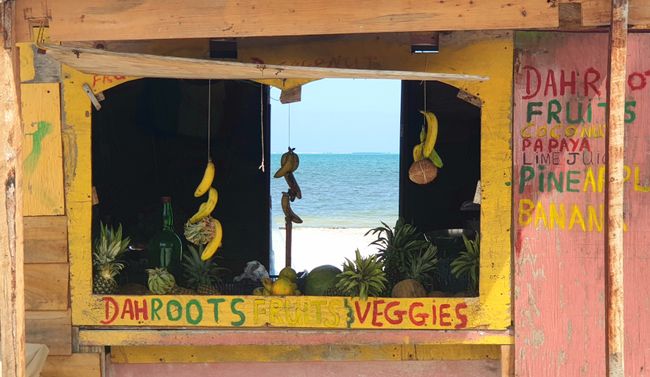
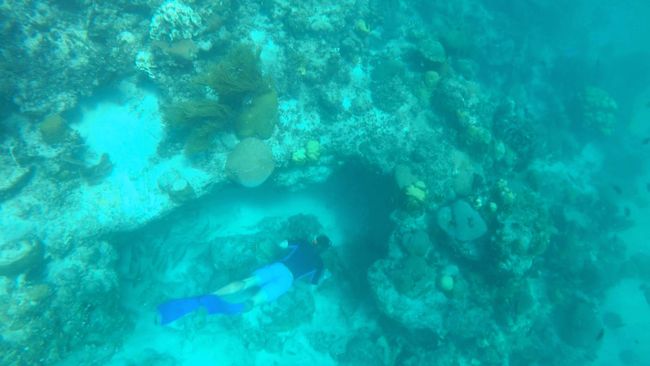
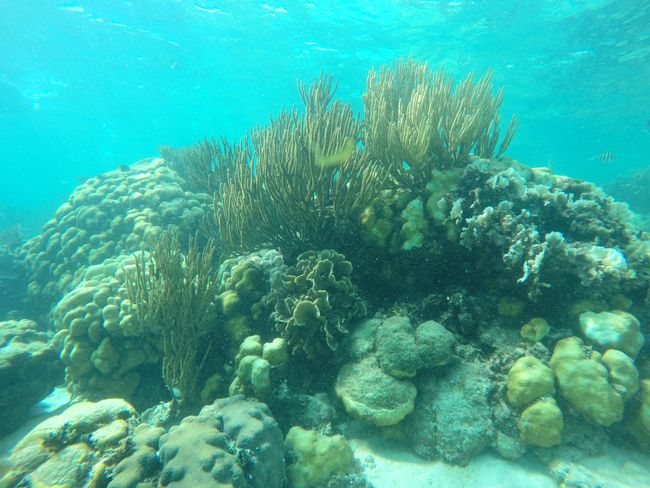
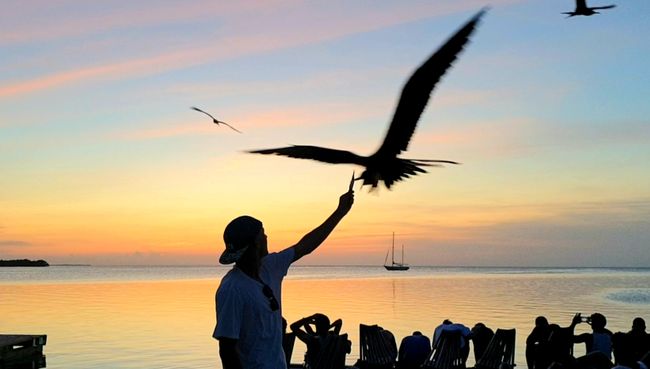
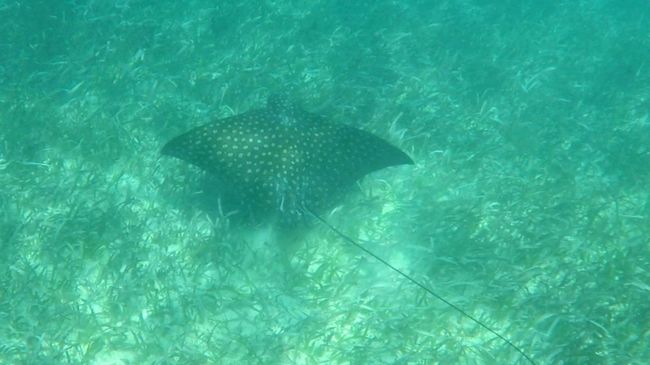
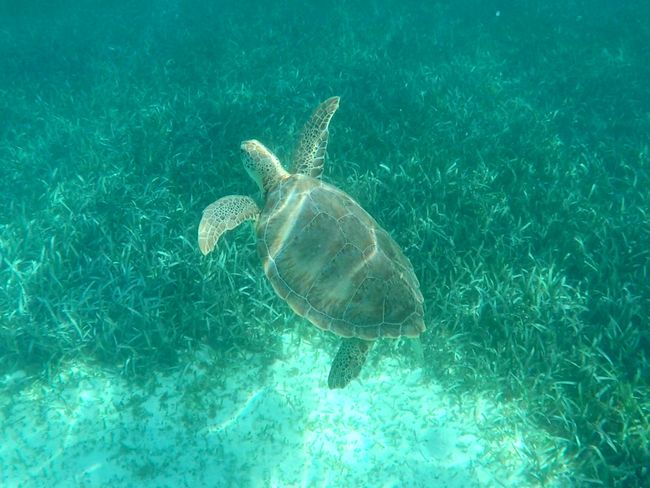
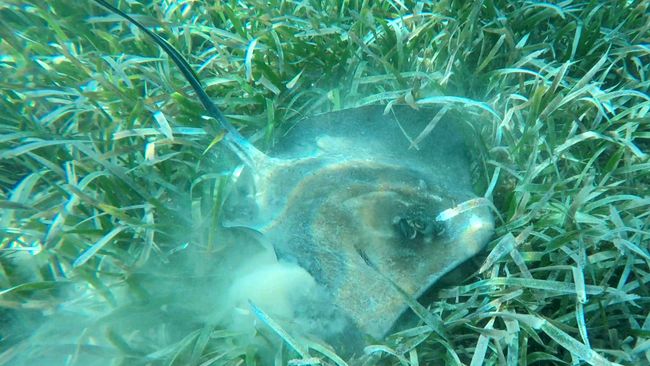
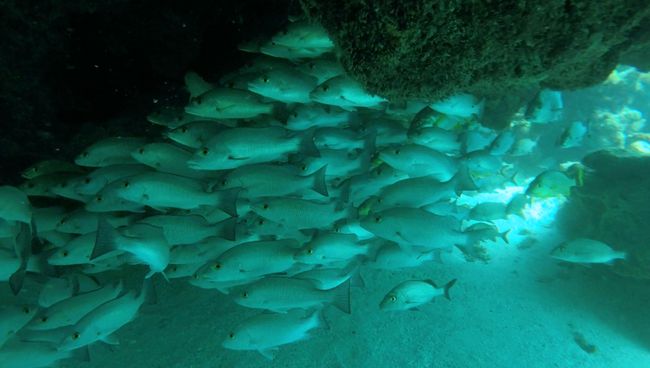
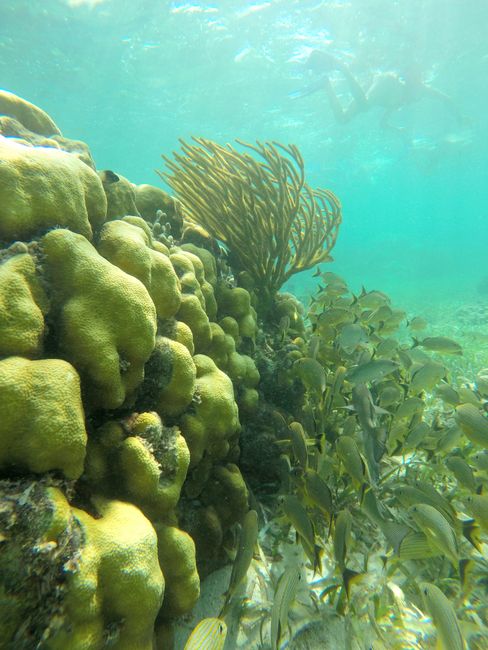
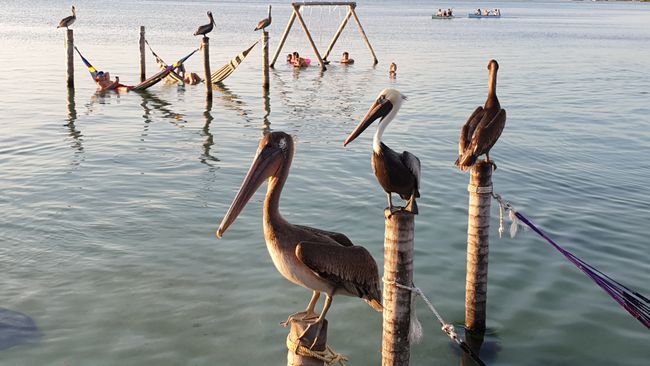
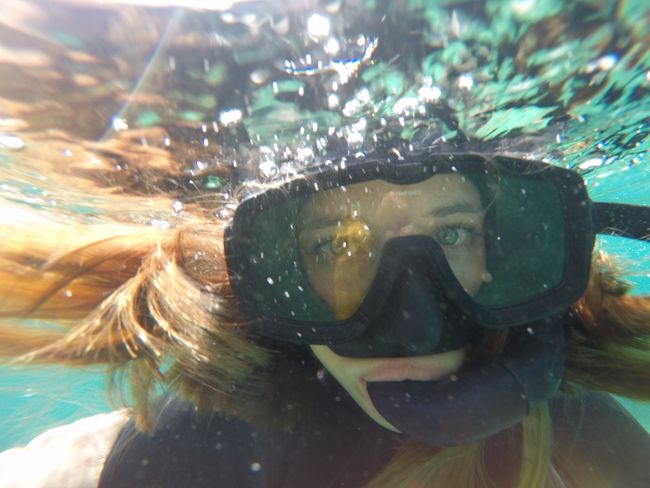
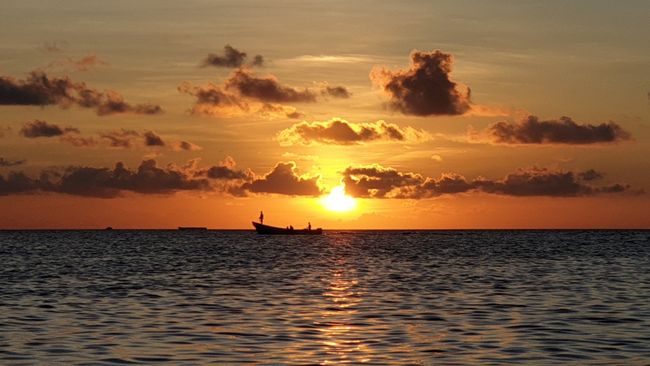
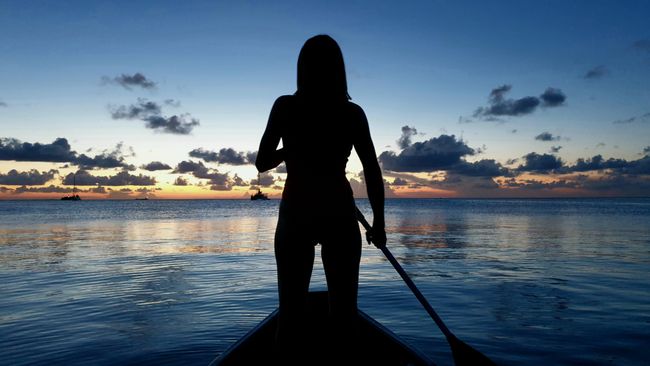
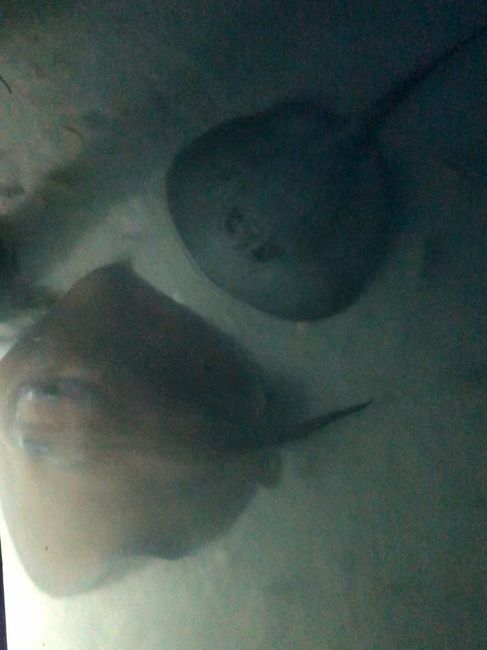
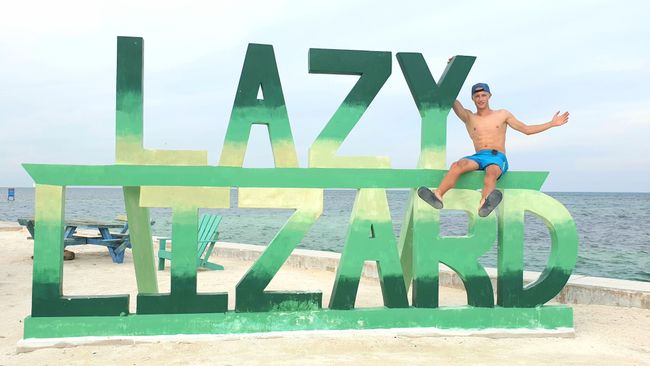
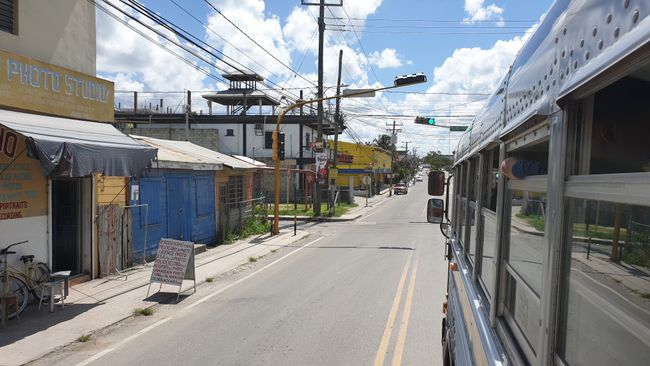
Wɔ Nudɔdɔ na Nyadzɔdzɔgbalẽ
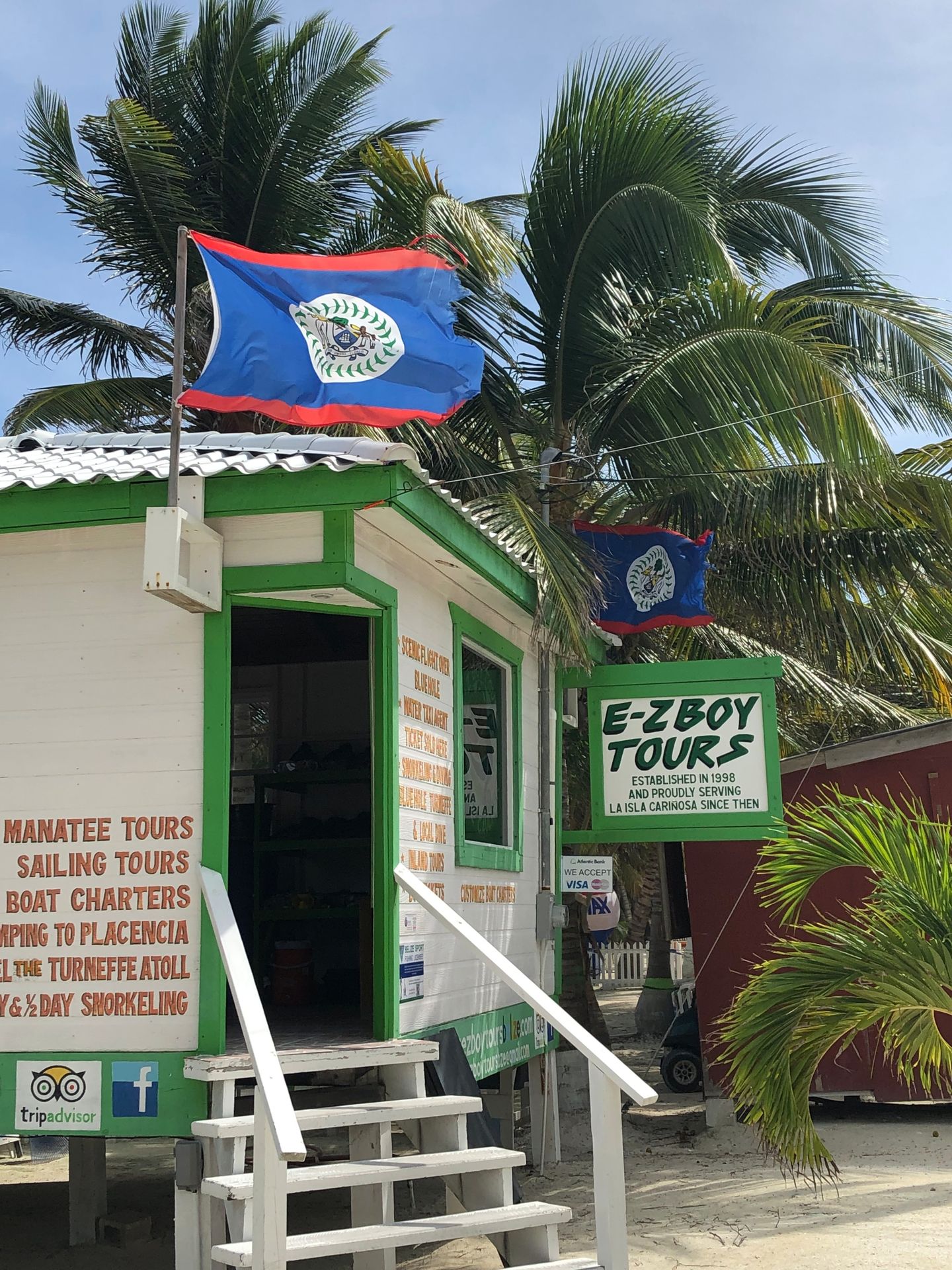
Apart from trying to charge us the Mexican tourism tax twice, our first terrestrial border crossing went smoothly.
For our first night in the third country, we stayed with Couchsurfer Lucas in the border town of Corozal. During an evening walk, he gladly answered our numerous questions about Belize, giving us the perfect insight into the country.
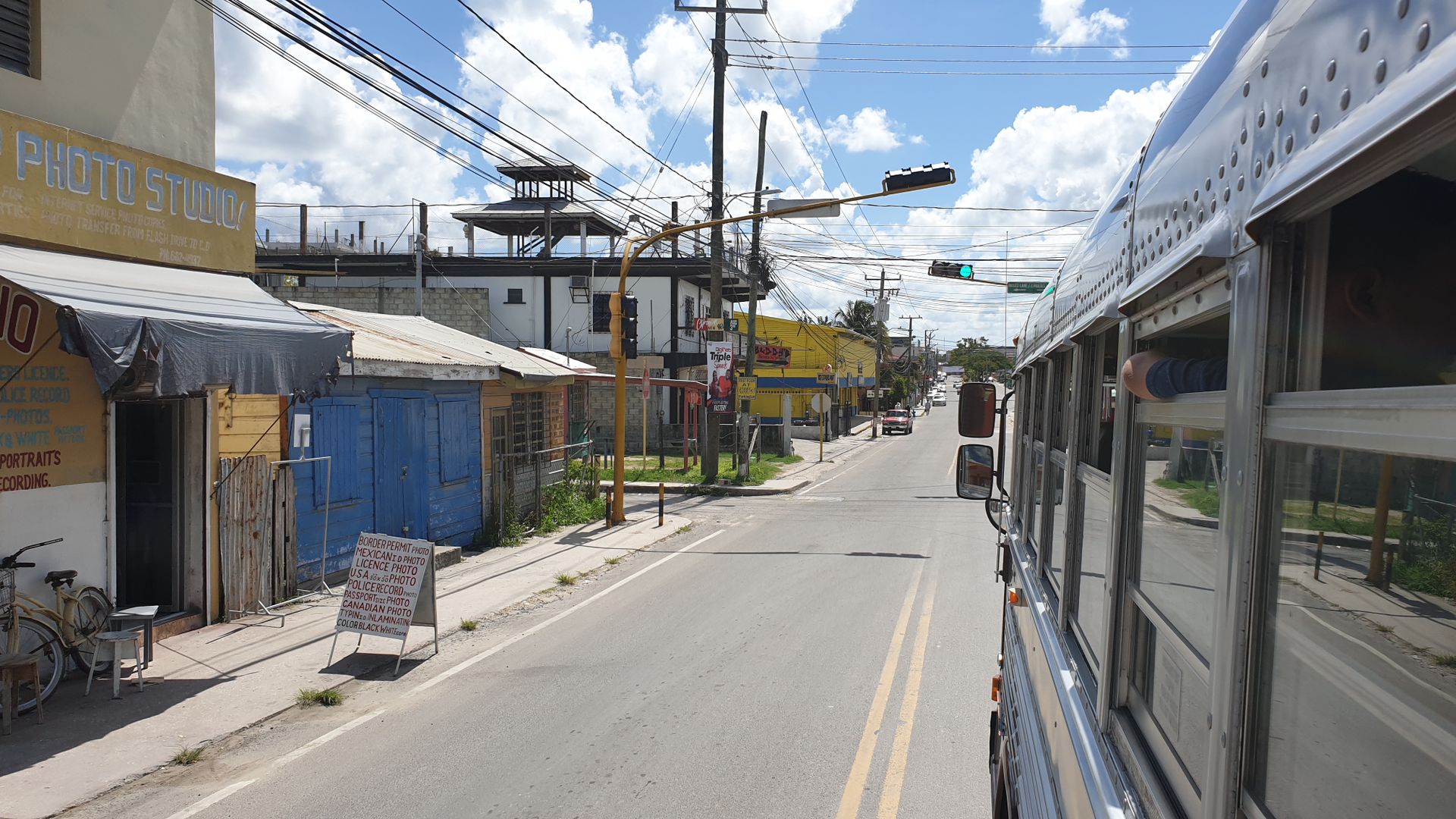
With his cosmopolitan and knowledgeable manner, he not only told us about Belize's past as a British colony and its close relationship with Jamaica, but also explained why Guatemala has been claiming Belize for years.
As a member of the Commonwealth, the face of the Queen still appears on banknotes and coins of the "Belizean Dollar". Belize was the only country that did not have to cede to Spain at the end of the 18th century.
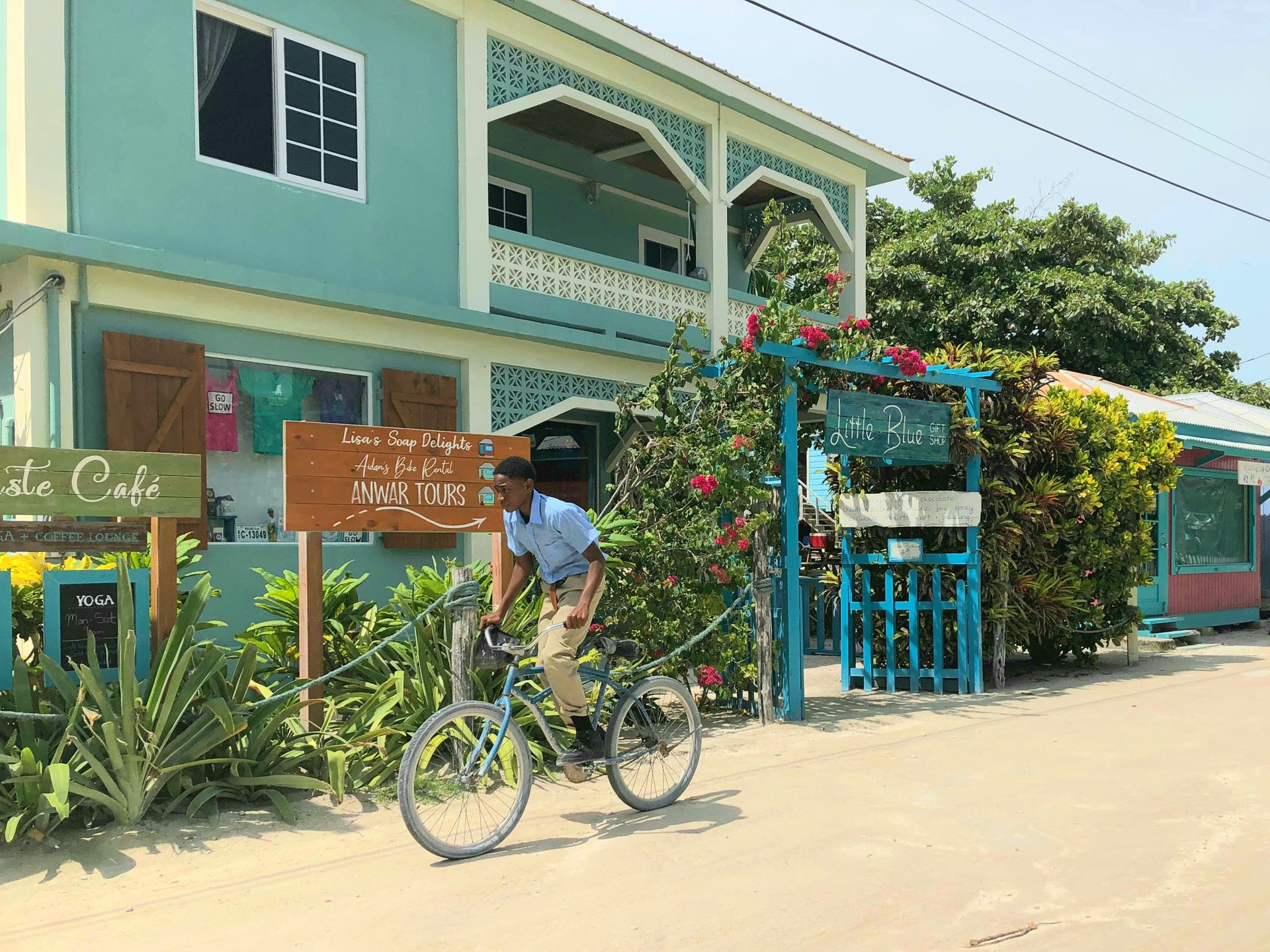
Since Belize was ruled by the also British colony of Jamaica at that time, it took on many similarities as the younger brother. This was particularly evident to us in the Caribbean slang English, the lively atmosphere, and the enormous consumption of cannabis. We often encountered the special humor: "Don't be shy to say 'hi' - don't be shy to get high'."
The traces of the colonial relationship can still be found in both countries: the Brexit negotiations in the fabulous English House of Commons are conducted on the finest Belizean mahogany.
Lucas told us a lot about the different ethnic groups that make up present-day Belize. The mestizos (a mixture of Native American and White) who immigrated from surrounding countries now make up the largest part of the population, followed by the dark-skinned Creoles (a mixture of African and White) who were brought to the Caribbean state as slaves. The Maya, the original inhabitants of Mesoamerica, are still the third largest population group. The other small population groups are also very interesting: for example, the so-called Garifuna are West Africans who accidentally stranded on St. Vincent and then mixed with the local Caribs.
Because Lucas can trace his ancestry back to all possible ethnic groups, it took him a long time to answer when we asked him which ethnic group he feels connected to.
Caye Caulker
Despite all the great conversations with Lucas, the next morning it was time to continue our journey:
Since Belize is very expensive, we only planned to stay here for a week, and our only major destination was the Caribbean island of Caye Caulker (pronounced Key Koker). So in the morning, we set off for Belize City, from where the ferries depart for the islands in the afternoon.
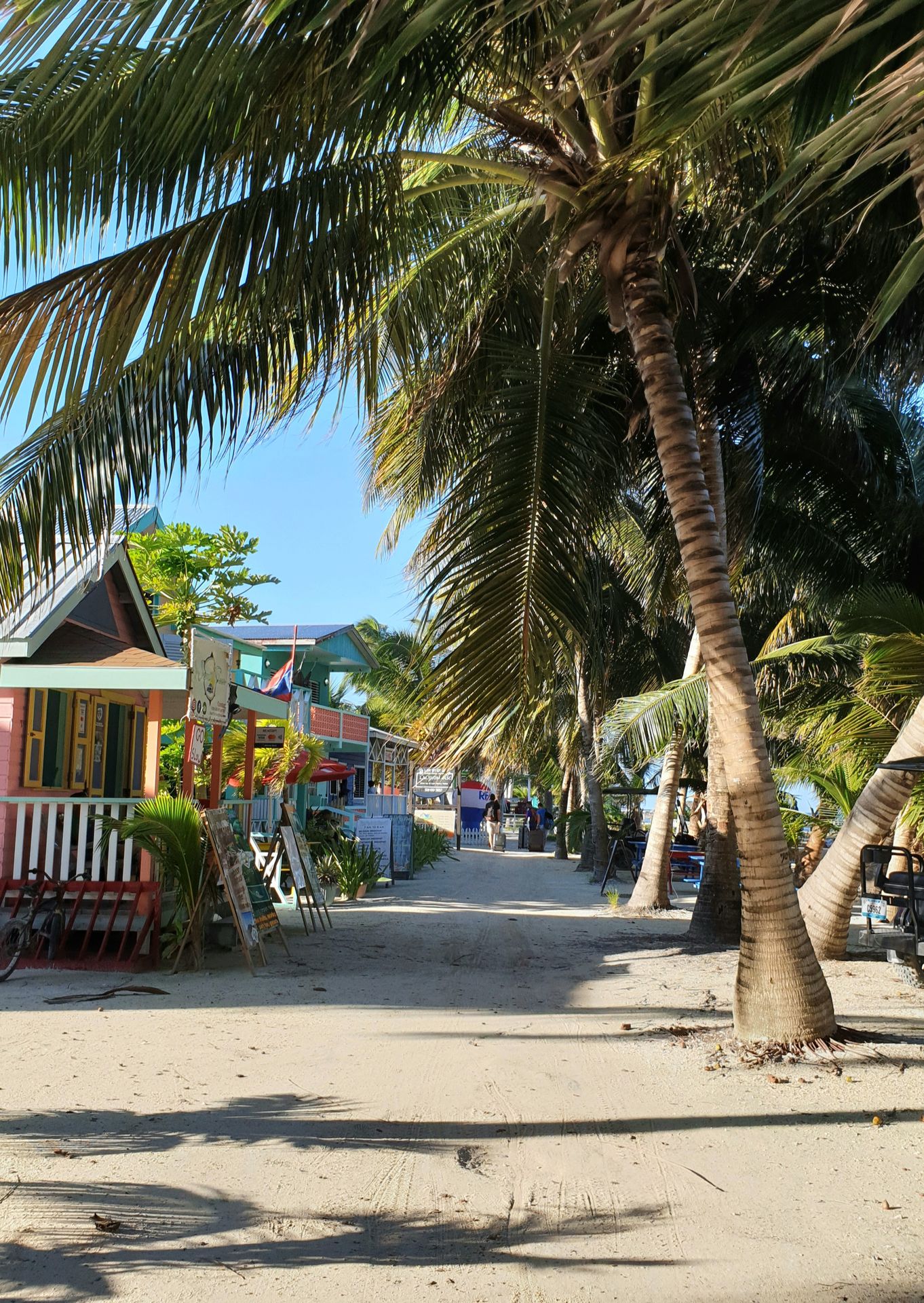
Caye Caulker is a blend of Caribbean flair and diving paradise. The motto of the island is "Go slow," and indeed, as soon as we got off the ferry, we felt a sense of total relaxation:
Caribbean Flair
There are no paved roads or cars. Even the police only drive around on golf carts. Between the colorful wooden houses, the palm leaves sway in the gentle breeze, and reggae covers of all imaginable genres can be heard from the nearest cocktail bar.

Furthermore, hustlers are trying to sell their weed on every street corner, and even the stray dogs seemed to have strangely red eyes. If it weren't for Belize flags hanging everywhere, you could think you were in Jamaica.
Diving Paradise
But now let's talk about the underwater world, the primary reason for our visit.
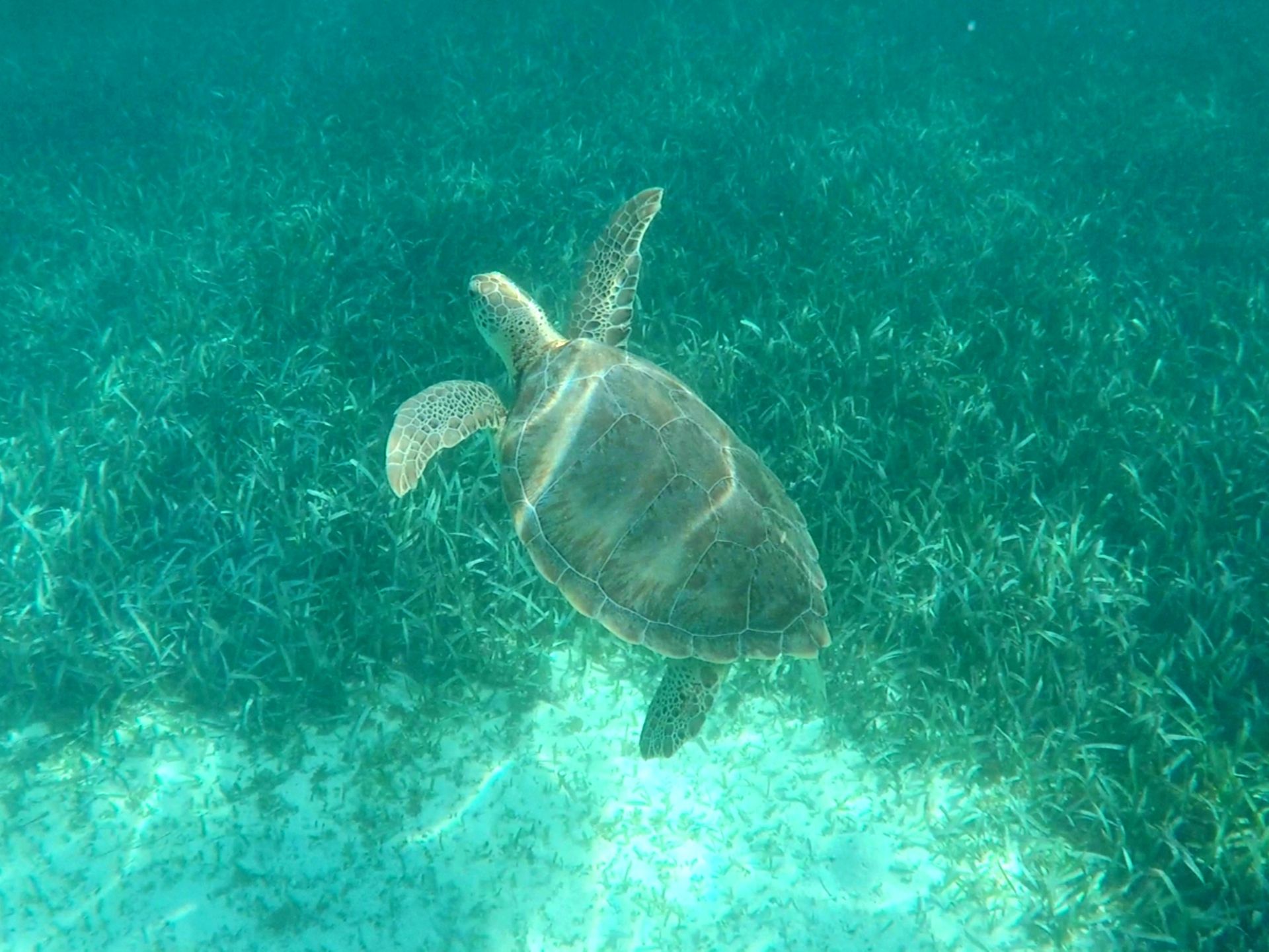
Belize also has a share of the previously mentioned Mesoamerican Reef (here Belize Barrier Reef), but here is another special feature that makes Belize the number one dive destination in the Americas:
Three hours by boat from Caye Caulker is the Great Blue Hole, which is often hailed as one of the world's best dive spots in dive magazines and on websites. Geologically, it used to be a cenote that is now submerged under the sea surface. From the air, it appears as a seemingly perfectly symmetrical, dark blue hole with a radius of over 300 meters in the midst of the turquoise sea.
Countless tourists spend their annual vacation in the little Caribbean country to dive in the world-famous Great Blue Hole or admire the unreal sight during a scenic flight.
Due to the wealthy tourists and the popularity of the islands, such activities are extremely expensive and therefore outside of our budget. To still get a glimpse of the fabulous underwater world, we decided to opt for the luxury of the common man: a full-day snorkeling tour on a sailboat through the Hol Chan Marine Reserve.
Snorkeling Tour
And indeed, at several stops, we saw what is usually only found while diving.

The enormous biodiversity did not remain hidden from us for long: already at our first stops, we saw tarpon, various types of stingrays, sea turtles, and even a manatee.
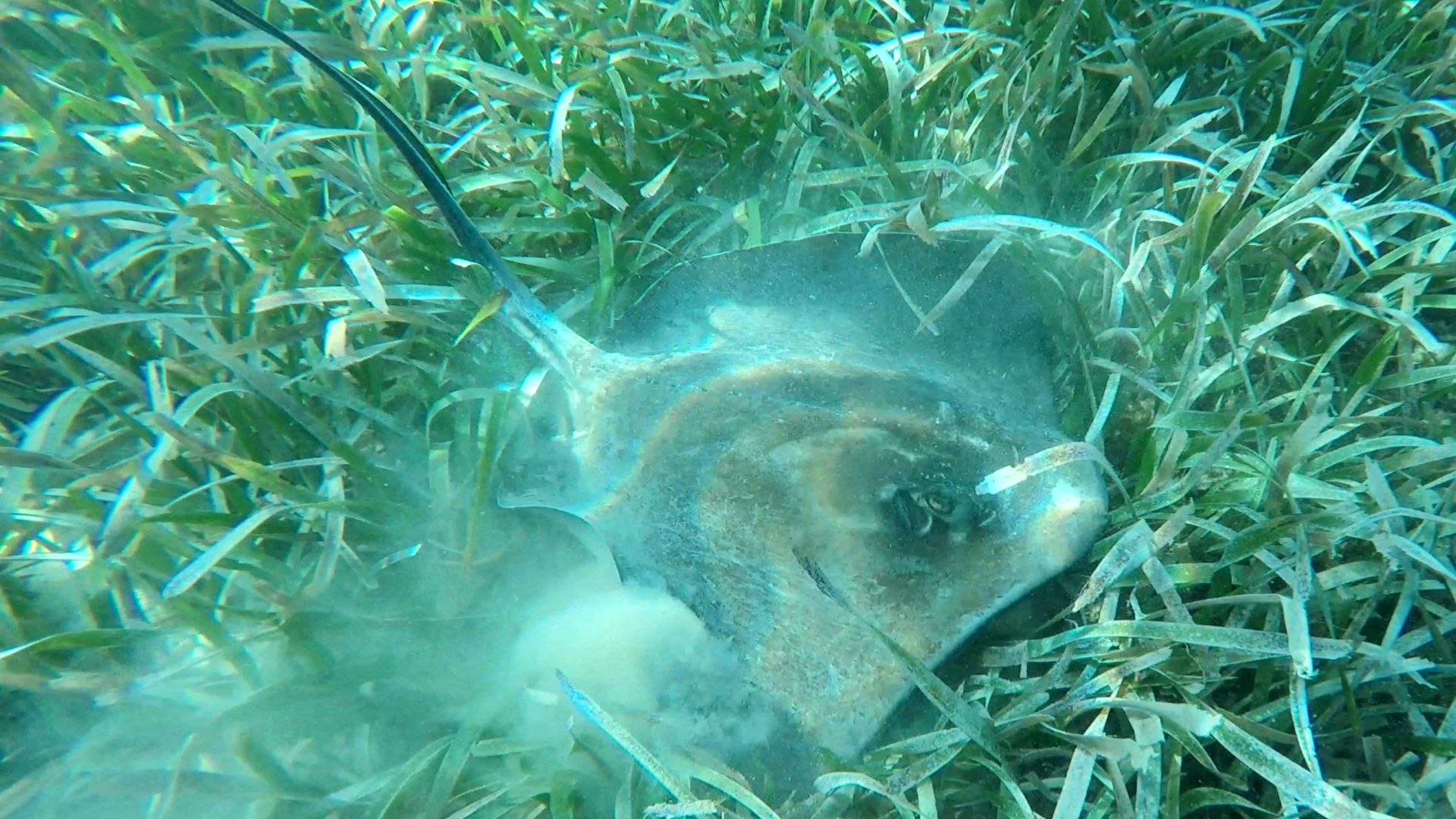
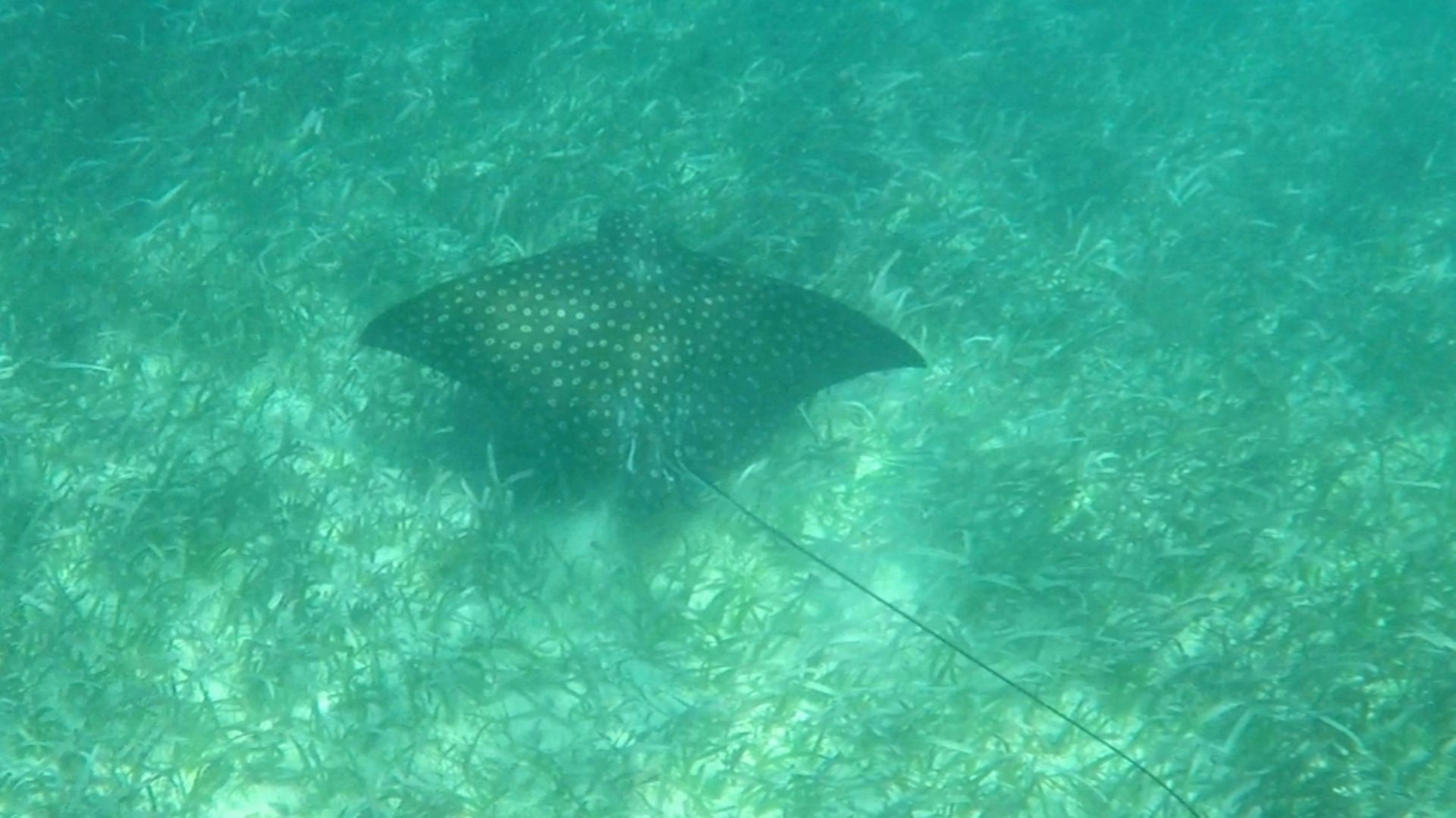
Then we arrived at the highlight of the tour: Shark Ray Alley. And suddenly, as if on command, our boat was surrounded by nurse sharks up to four meters long.
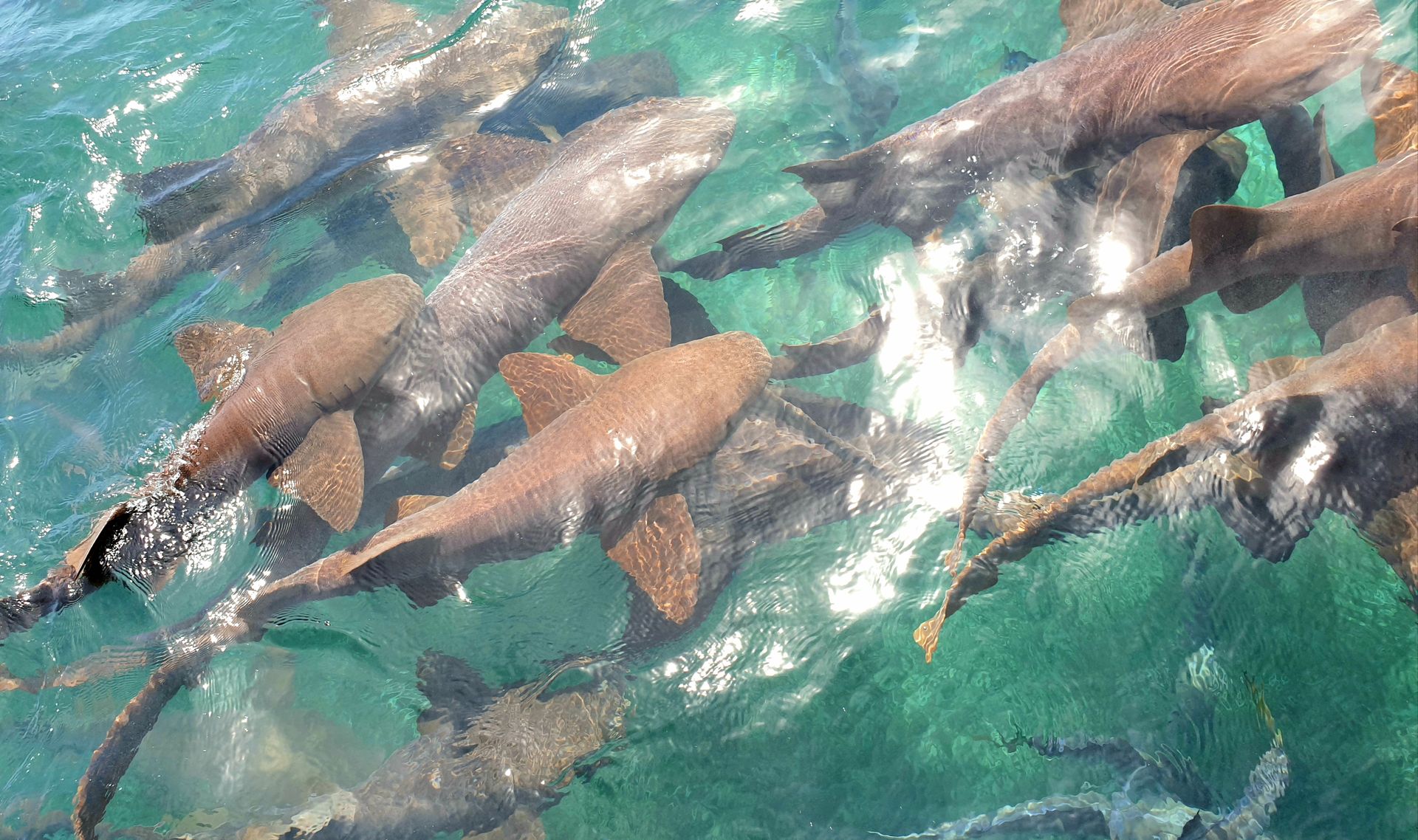
In the next moment, we were handed our snorkels. "Remember you don't have to be faster than the shark, just be faster than your buddy," joked our tour guide as we jumped into the water. We had never seen such large marine creatures before, let alone entered their habitat. A feeling of awe and fascination came over us.
The day before, we had learned from an expert that supposedly harmless sharks can be identified, among other things, by the fact that they have several small dorsal fins. Potentially more dangerous sharks have only one large dorsal fin.
Even though their size and appearance were intimidating, nurse sharks, as long as they are not provoked, are considered completely harmless. They have no teeth and suck in their food. The accurate distinction based on the dorsal fins quickly became redundant.
In the water, the sharks avoided us, but when we moved away from the large group of snorkelers, we could get very close to two smaller sharks - incredibly exciting!
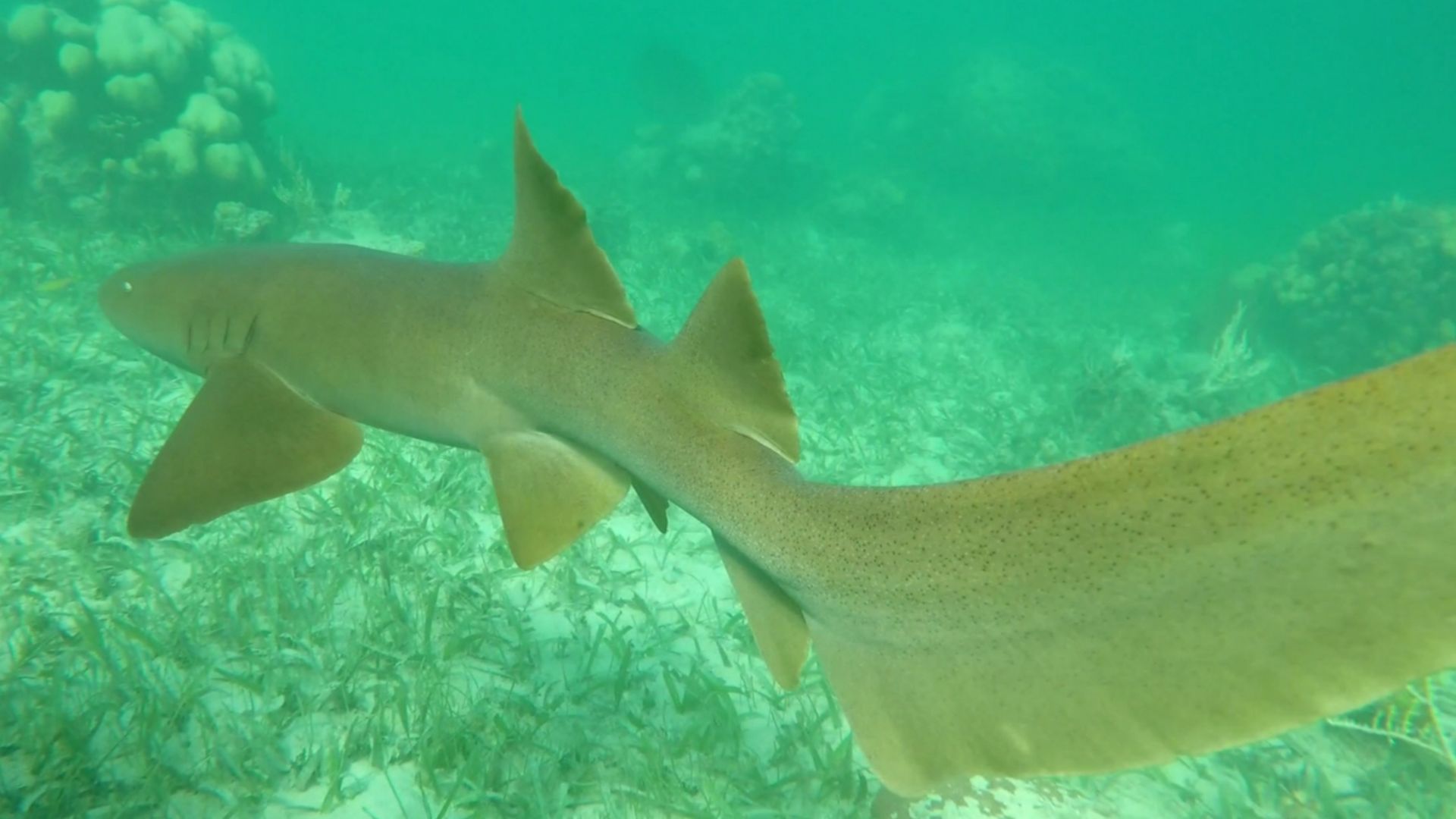
Accompanied by reggae music, we sailed to another stop, the so-called "Coral Garden." Here, near the water's surface, we were presented with the amazingly colorful underwater world.

In addition to numerous corals in all imaginable forms, various colorful fish complete the vibrant scenery. The huge coral formations rose like a rock landscape.
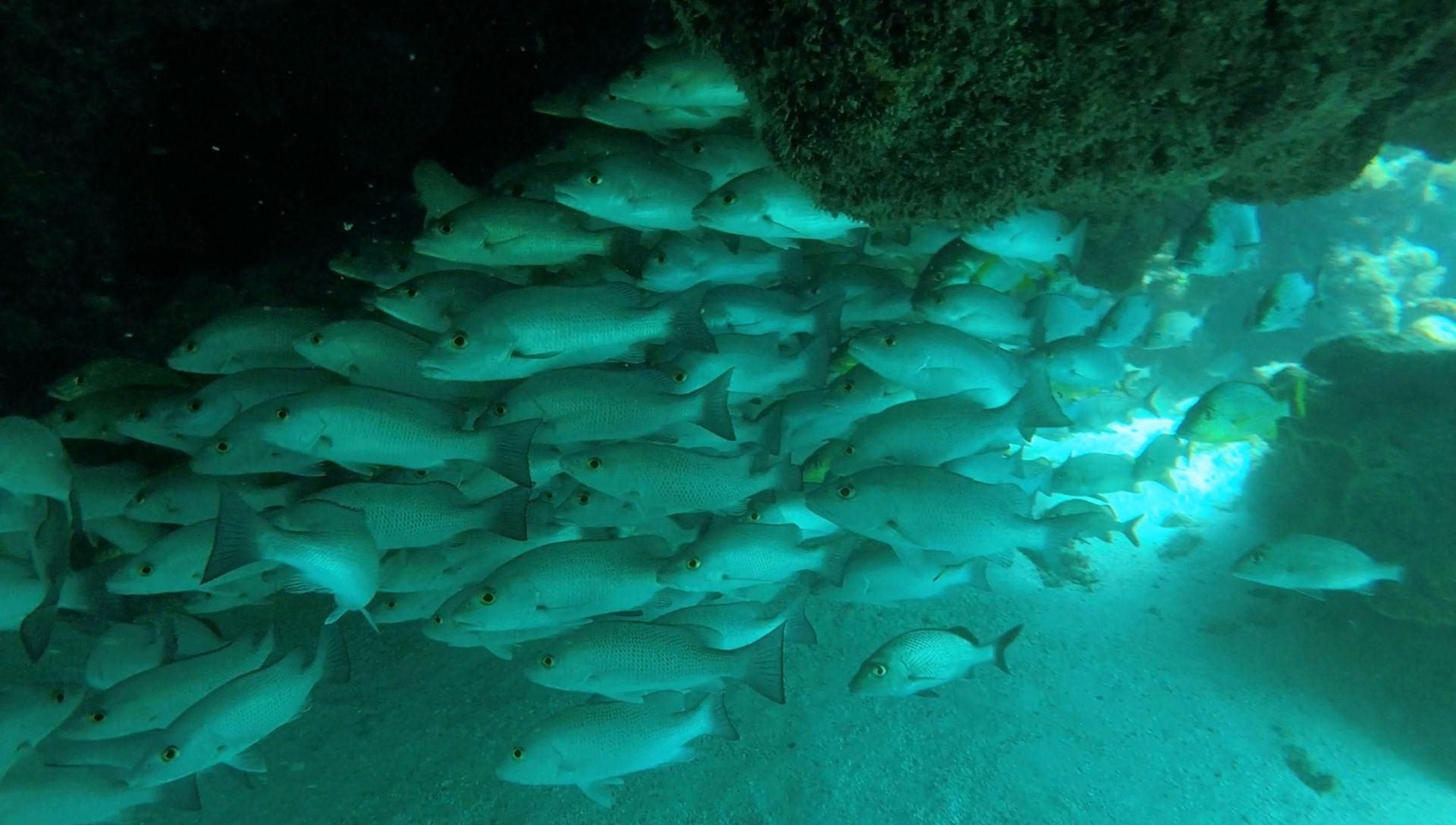
As long as our breath allowed, we could dive down to a small cave on the seabed. We would have loved to spend the whole day there...

All in all, the snorkeling tour was an absolute highlight of our trip. It was incredible to see so much in one day. However, it should also be mentioned that while reputable tour providers now strongly disapprove of it, in the past, the sharks were fed for the tourists. Over the years, the animals have been conditioned to seek contact with the boats, which is, of course, not a natural behavior pattern.
Our Daily Life on Caye Caulker
To not strain our budget too much, we had the largest shared bedroom of our entire trip here with 16 beds.
Especially the English-speaking nations are very strongly represented on the Caribbean island. So our hostel was dominated by booze-loving Irish and Australians, who gave us an introduction to their party culture one evening.
Paradoxically, Caye Caulker does not have a beach, so apart from the high-priced tours, there is not much to do. Most tourists simply indulge in rum and the relaxed vibe at one of the bars like the "Lazy Lizard" during the day.

During our stay, the weather was perfect. We witnessed picturesque sunsets every day for four days.
When we were not paddling on a kayak over the fiery water towards the setting sun, we spent our evenings at the "Iguana Reef Inn."
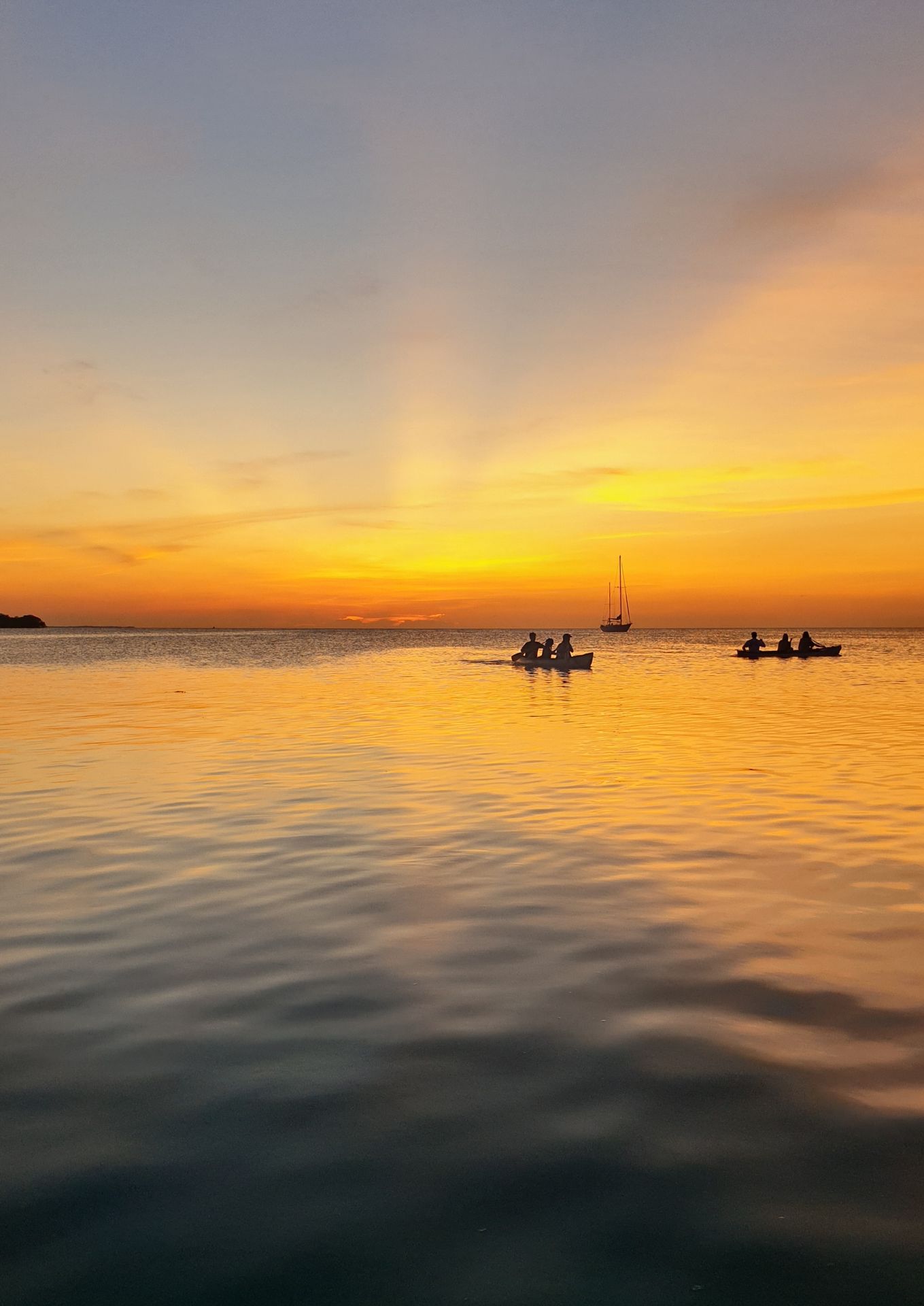
Because when the first orange tones appeared in the sky, feeding time started on a pier. The cheeky pelicans put on a real air show: to catch a fish from the fishermen boys, they zoomed just above our heads and, if necessary, between us. In the water around the pier, huge stingrays gathered, much larger than a family-sized pizza.
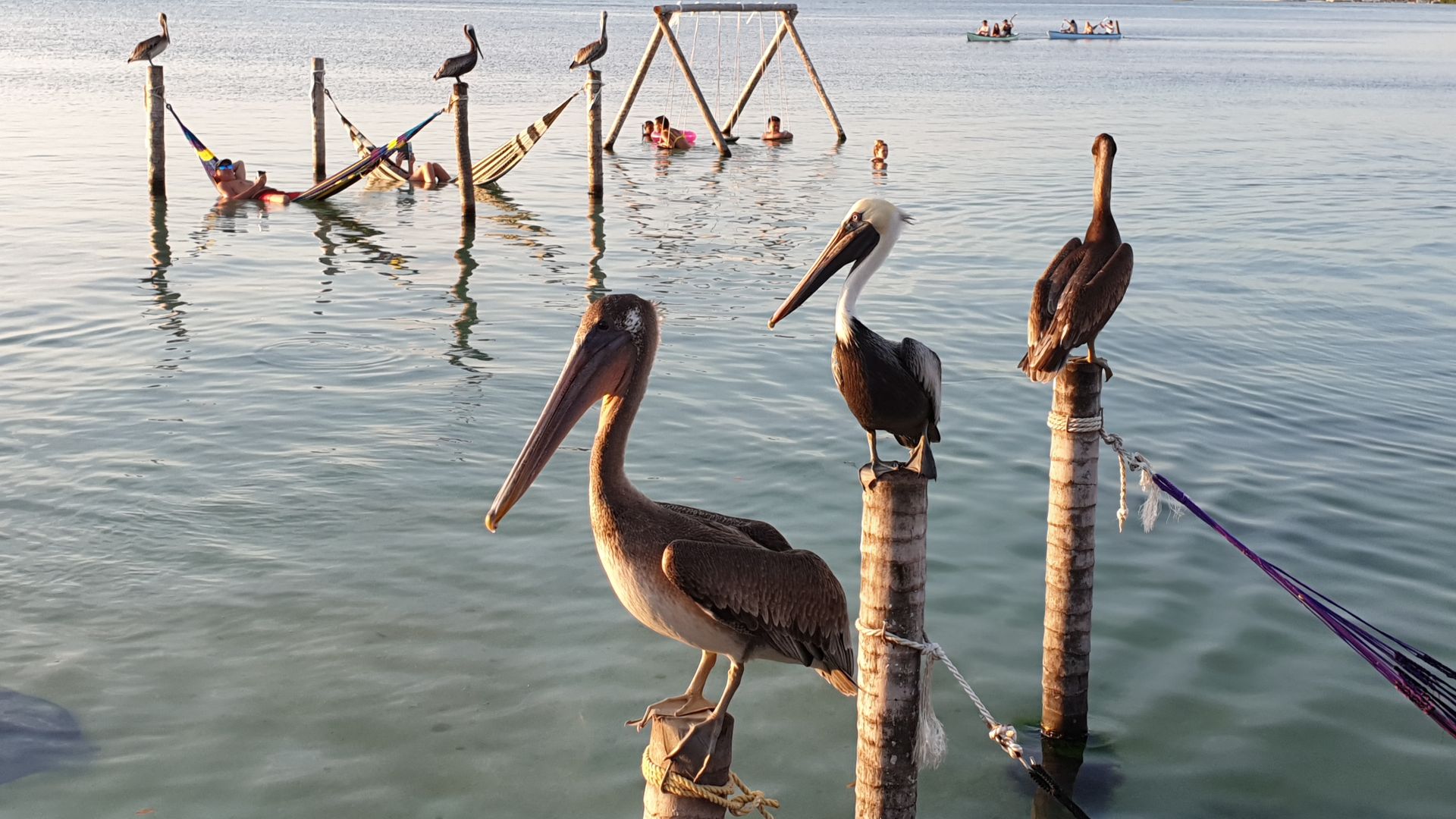
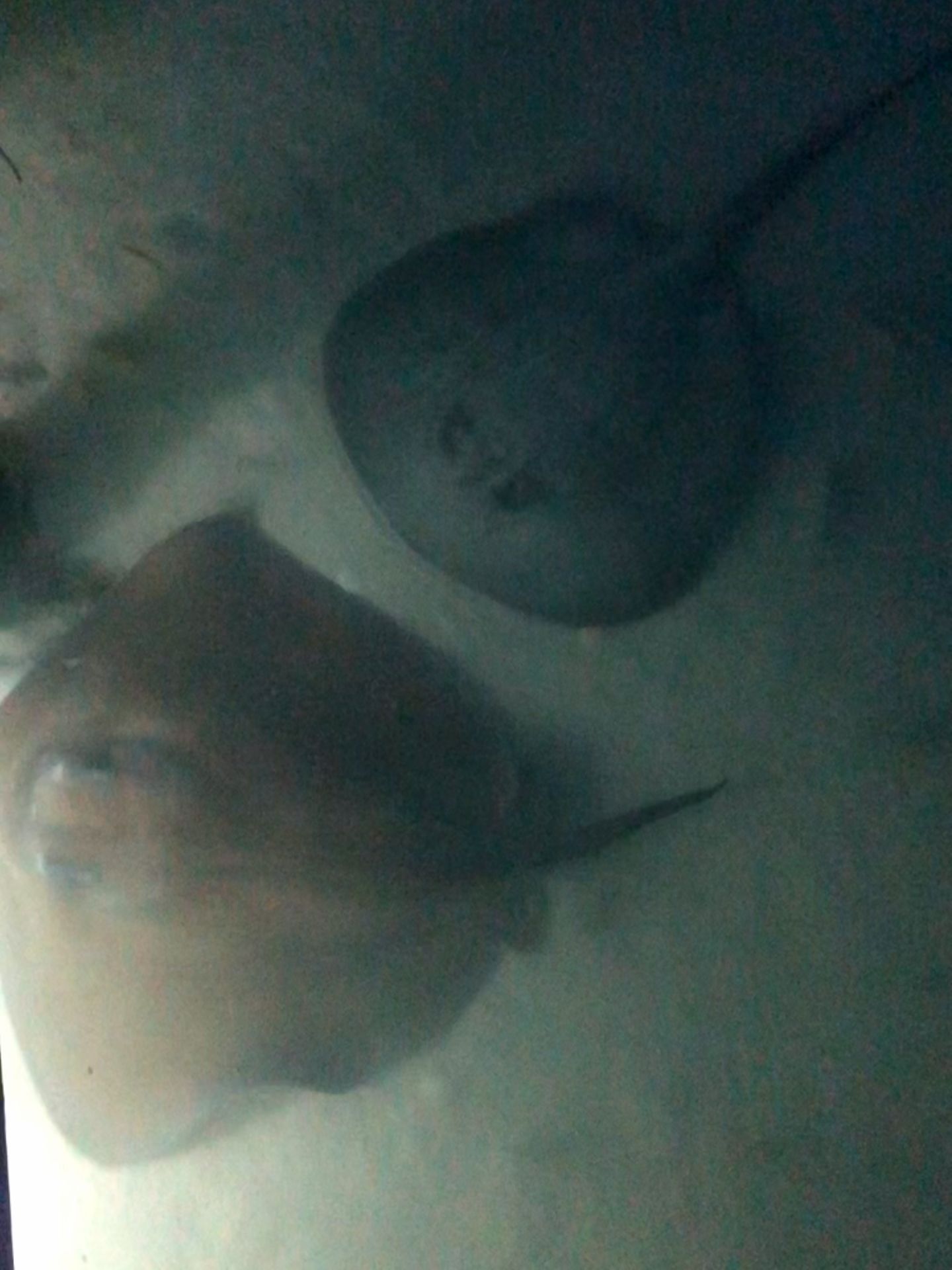
And so, surrounded by hungry animals, day after day, we witnessed the spectacle of the red fireball sinking into the sea.
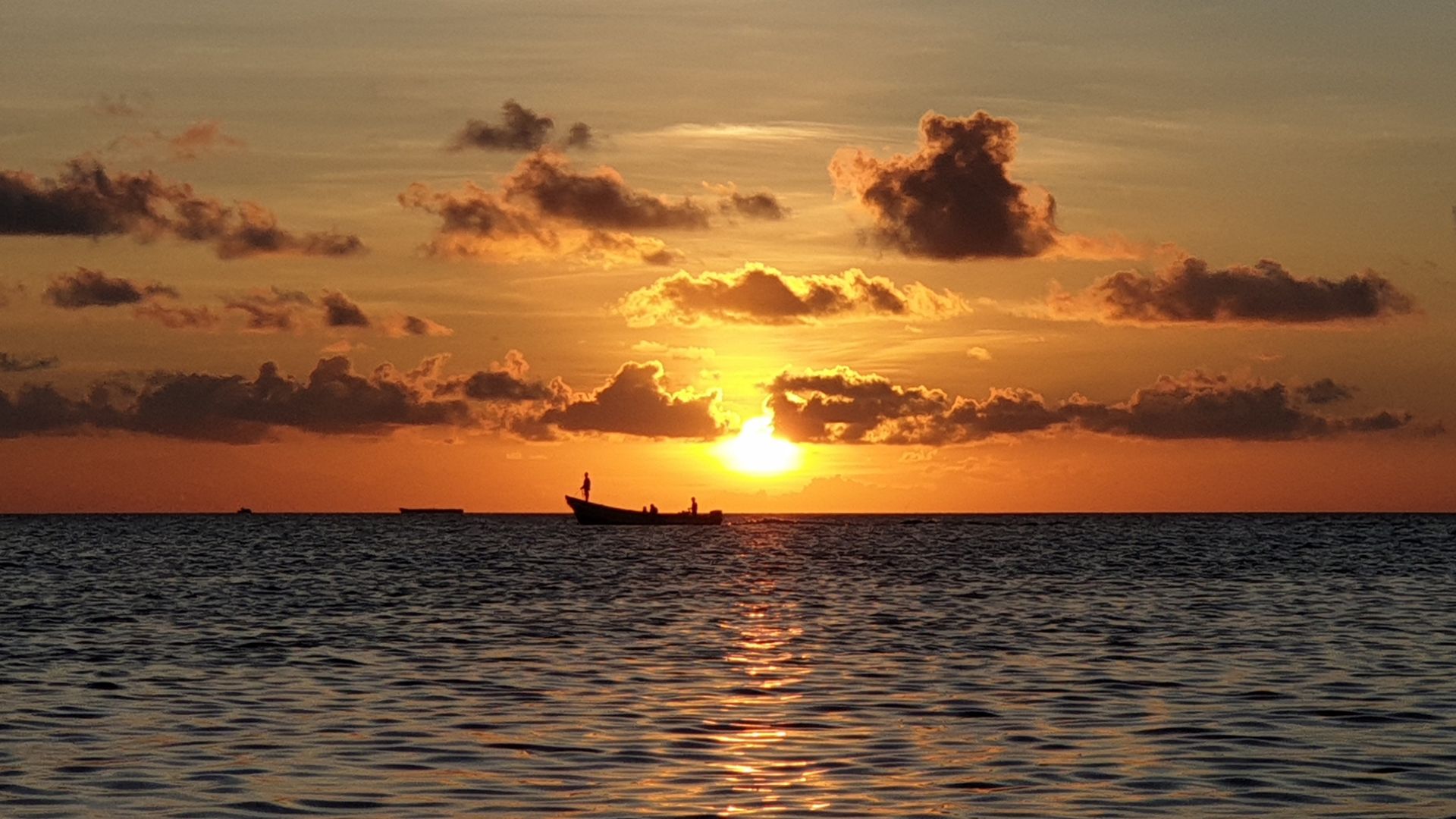
After four nights, it was time to continue our journey: from Caye Caulker, we went to Belize City, then the capital Belmopan, and finally to San Ignacio. Here, we spent one night before heading to Guatemala the next day.
Conclusion Belize
We had a nice and above all very relaxed time on Caye Caulker, but due to the high prices and limited opportunities, we would not have wanted to stay much longer. In general, it seems that the island is somewhat in the shadow of its extremely good reputation.

However, for us, a tour of Belize's underwater world was enough to fulfill dreams and create new perspectives. We had never experienced the sea so vividly and seen such a variety of fish and corals, and all of this without proper diving!
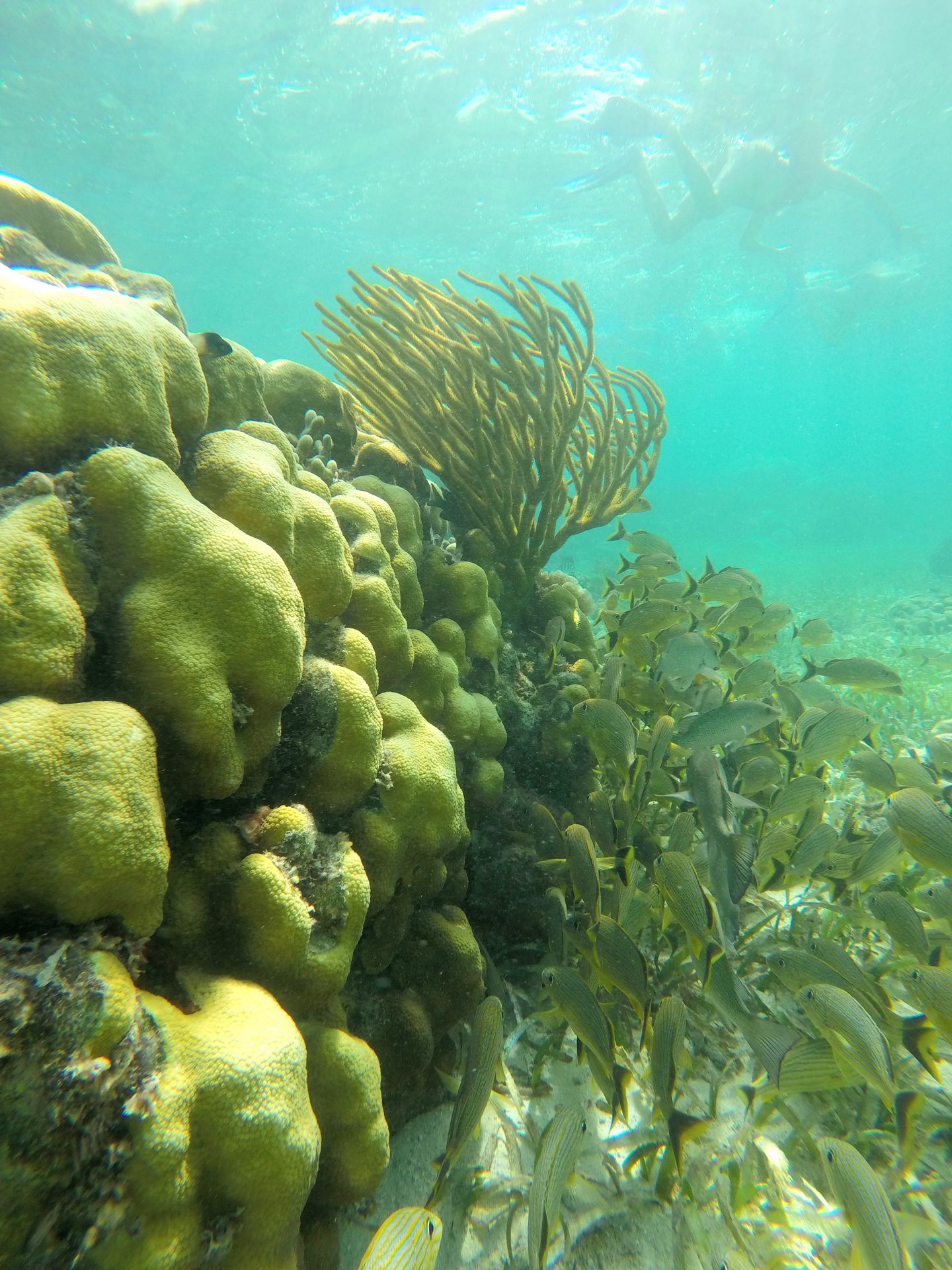
Above all, the first encounter with a shark will always be unforgettable. From this point on, our enthusiasm for snorkeling was fully ignited, and despite our minimalist possessions, we no longer want to be without snorkeling gear. Belize has opened up whole new horizons for us!
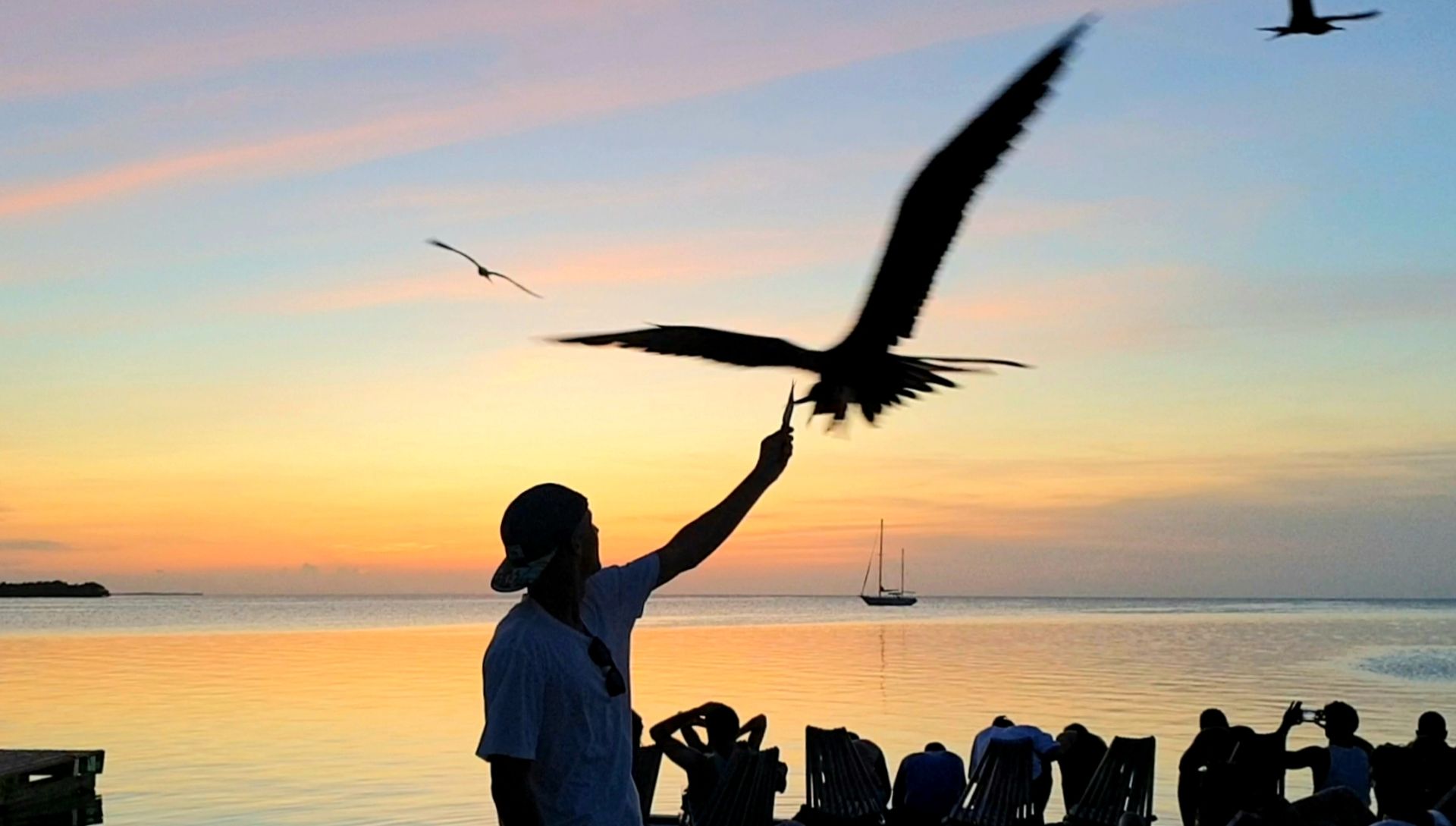
We will remember the people of Belize, especially for their refreshing humor and their Caribbean slang English: "Got a tail of a whale or a whale of a tale?" - Did you catch a fish or are you just telling tales?
After everything we have experienced here, we can only agree with the famous slogan "You better Belize it." Whatever it means exactly, it's true.
Saludos!
D&J
Wɔ Nudɔdɔ na Nyadzɔdzɔgbalẽ
Ŋuɖoɖo
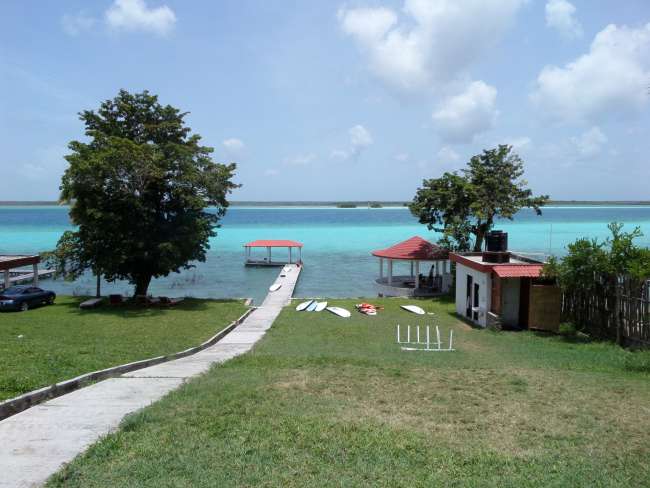
Mɔzɔzɔ ŋuti nyatakakawo Belize
